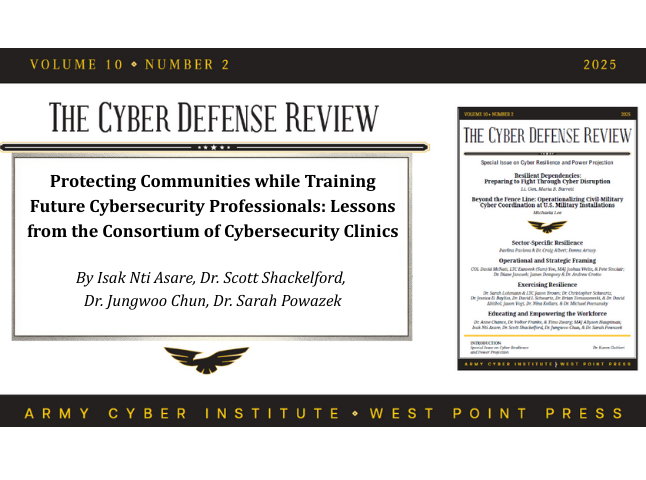Cybersecurity for the public good
We are training the next generation of cyber leaders and safeguarding community organizations.
What is a clinic?
A cybersecurity clinic provides cybersecurity services to community organizations, including small businesses, nonprofits, cities and towns, rural school districts, small utilities and more, while giving students real-world cybersecurity experience. Modeled after legal and medical school clinics, cybersecurity clinics are typically housed at colleges and universities under the direction of clinical professors. Students from diverse backgrounds and degree paths train to provide free cybersecurity assistance to clients who could not otherwise afford these services. Clinics serve as a skills-based learning environment for students and as a vital local resource for improving the cybersecurity resilience of communities.
Expanding the Consortium’s reach
Discover the growing list of US and global clinic locations for all the different Consortium members!
(Scroll and drag or click the +/- symbols to zoom in/out on the map.)
Expanding the clinic model
The Consortium of Cybersecurity Clinics is an international network of university-based cybersecurity clinics and allies working to advance cybersecurity education for public good.
We serve as a forum for faculty, students, trainers, and advocates to network and share knowledge, expand the reach of cybersecurity clinics, and lower the barriers for other institutions of higher education to successfully establish their own clinics.
Our vision is to launch a university, college, or community-college based clinic in all 50 U.S. states by 2030.

Sharing and standardizing teaching materials among members
Supporting funding for the creation of new clinics
Advocating for the clinic model
Why clinics work
Cybersecurity clinics fill the gaps at the front line of cybersecurity technical assistance. We are:

Providing essential cybersecurity services
University-based cybersecurity clinics help clients develop long-term cybersecurity defense, increase their resilience, and expand their cybersecurity capacity. Students provide a range of digital security services, such as vulnerability and risk assessments, cybersecurity policy templates, incident response plans, ransomware training, NIST and CMMC certifications, and more.

Serving our local communities
Cyber clinics students work with local and regional organizations, bringing cyber talent where it is needed in their own backyards. Participating in clinics embeds the value of public service in future cybersecurity leaders.

Prioritizing under-resourced organizations
The widespread effects of a successful cyber attack can have broad impacts, yet many public interest organizations lack the resources for cybersecurity self-defense. University-based cybersecurity clinics provide pro bono assistance to resource-strapped organizations like non-profits, small businesses, local government, hospitals, and other community organizations.
Consortium blog & news
Donate to the Consortium





